
Past Tense Of Dig, Past Participle Form of Dig, Dig Dug Dug V1 V2 V3
The simple past tense of "dig" is "dug." It is used to describe a completed action in the past. Here are some examples: I dug a hole in the garden yesterday. He dug a tunnel under the river. We dug up some old artifacts in the archaeological site. Past Continuous Tense The past continuous tense of "dig" is "was/were digging."
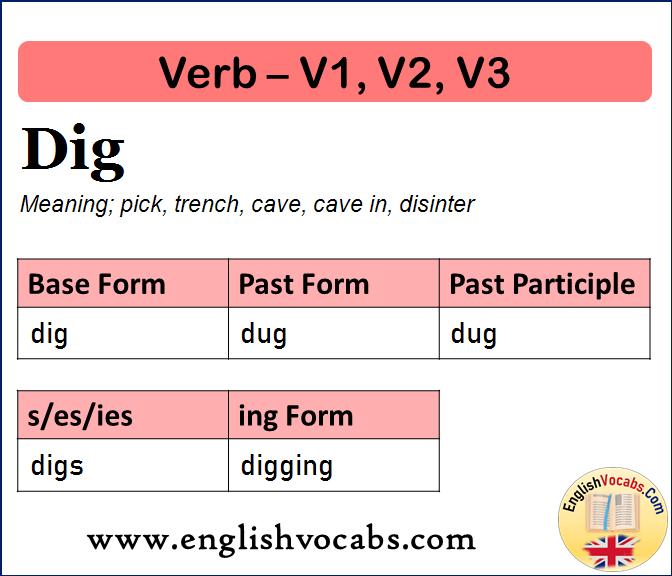
Dig Past Simple, Past Participle, V1 V2 V3 Form of Dig English Vocabs
verb uk / dɪɡ / us / dɪɡ / present participle digging | past tense and past participle dug dig verb (MOVE SOIL) Add to word list B1 [ I or T ] to break up and move soil using a tool, a machine, or your hands: Digging (in) the garden is good exercise. B2 [ T ] to form a hole by moving soil: The tunnel was dug with the aid of heavy machinery.

Dig V1 V2 V3 V4 V5 , Past Tense, Past Participle Form of Dig
What is the past tense of 'dig'? The past tense of ' dig ' is 'dug.' For example, "Yesterday, I dug a hole in the garden." What is the past participle of 'dig'? The past participle of ' dig ' is also ' dug .' For example, "I have dug many holes in this garden." What are the verb forms V1 V2 V3 V4 V5 of 'dig'?

Dig Past Tense, Past Participle, Verb Forms V1 V2 V3 V4 V5
The past tense (past participle) form of "dig" is "dug." The infinitive of the word form is "dig." The present participle form is "digging." The past tense form is "dug" and past participle form is "dug." Understanding verb tenses The general grammar rules that govern past tenses are as follows.

Tom's TEFL 65pg P1P3 Word Bank Dictionary
Definition of 'dug' Word Frequency dug (dʌg ) Dug is the past tense and past participle of dig . Collins COBUILD Advanced Learner's Dictionary. Copyright © HarperCollins Publishers Video: pronunciation of dug American English pronunciation British English pronunciation 'dug' your text Playlists 'Whovian' 'dug' NEW from Collins! English Grammar Apps

Past Tense Of Dig / Tenses Archives English Study Here For most
Conjugation of the verb dig: Base Form/Infinitive without 'to': dig. Past Simple: dug. Past Partciple: dug. Present Partciple: digging. Third Person Singular: digs. Definition: To make a hole in the ground using a tool, a machine, or your hands. Example(s): The animal had been digging for food.

Verb 3 Dig Meteor
The past tense of dig is dug. See all forms of dig with easy examples.
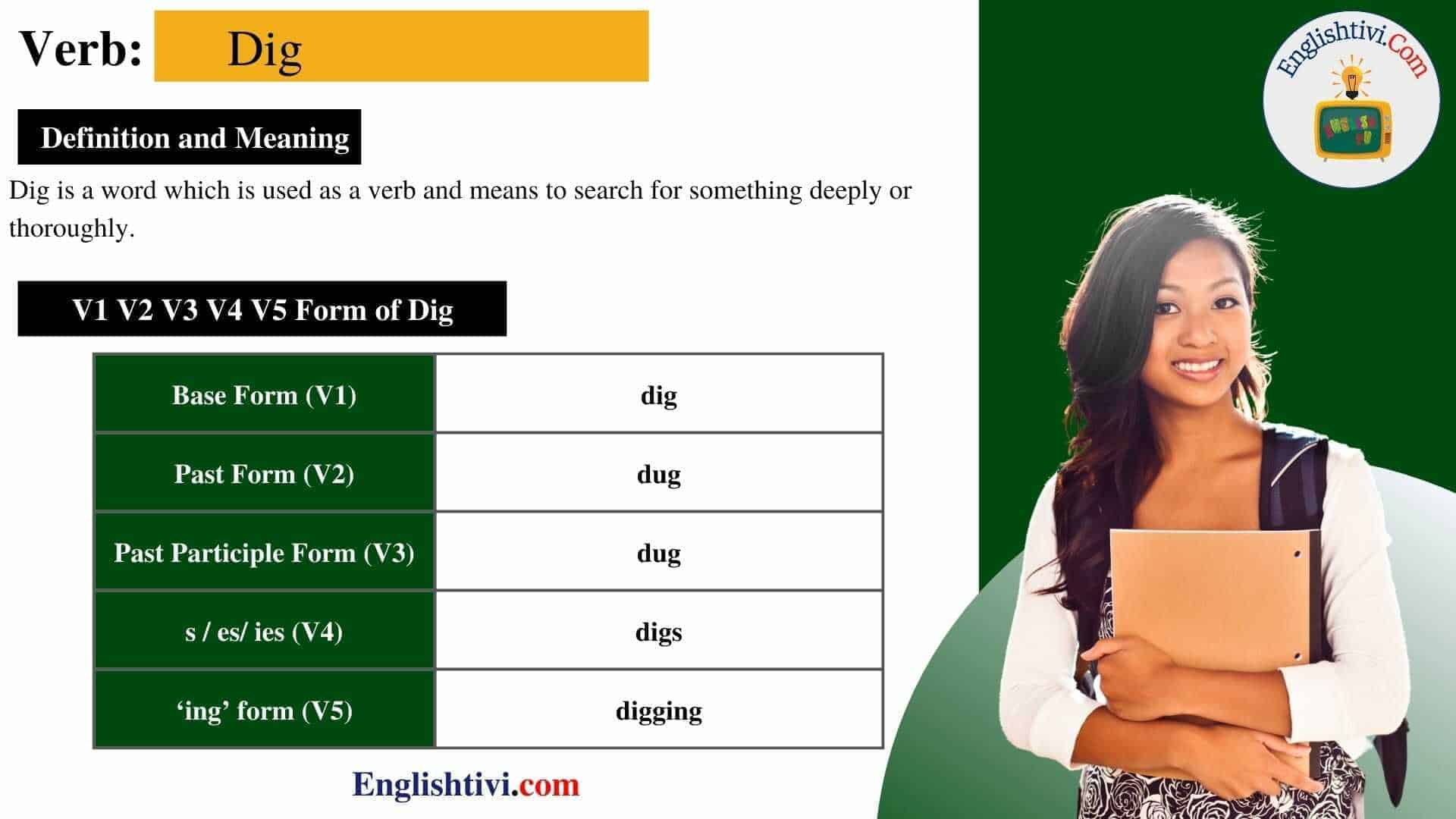
Dig V1 V2 V3 V4 V5 Base Form, Past Simple, Past Participle Form of Dig
past participle: (to) dig di gg ing dug definition in Spanish in French in Italian Indicative Perfect tenses Continuous (progressive) and emphatic tenses Compound continuous (progressive) tenses
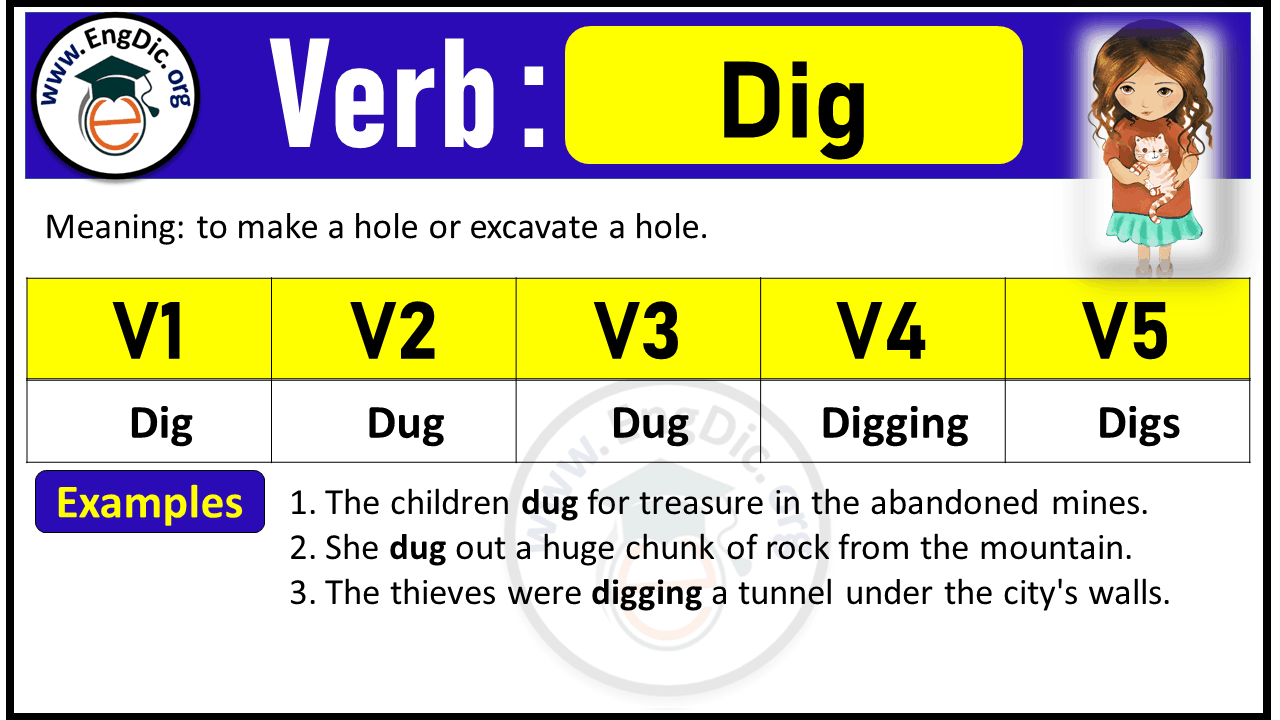
Past tense of DIG Archives EngDic
had dug. The past perfect tense is for emphasizing that an action was completed before another took place. had been digging. had been digging. had been digging. had been digging. had been digging. had been digging. The past perfect progressive tense is for showing that an ongoing action in the past has ended.
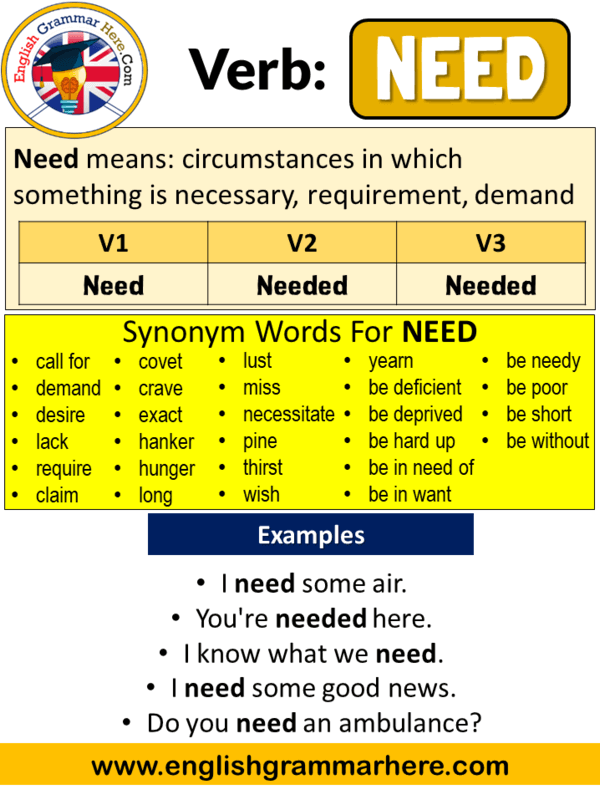
Past Tense Of Dig / Tenses Archives English Study Here For most
Past participle dug Model : dig Auxiliary : have, be Other forms: dig oneself / not dig Contractions Advertising Indicative Present I dig you dig he/she/it digs we dig you dig they dig Preterite I dug you dug he/she/it dug we dug you dug they dug Present continuous I am digging you are digging he/she/it is digging we are digging you are digging

Dig Verb Forms, Past Tense of Dig, Past Participle of Dig, Dig V1 V2 V3
Dig Past Simple, Simple Past Tense of Dig, Past Participle, V1 V2 V3 Form Of Dig When learning English you need to know the meaning of certain words first, and then sort the words appropriately according to grammatical rules. Verbs in a regular structure can be transformed with a simple rule, whereas in irregular verbs, this situation is slightly different. It may be a good start to make some.
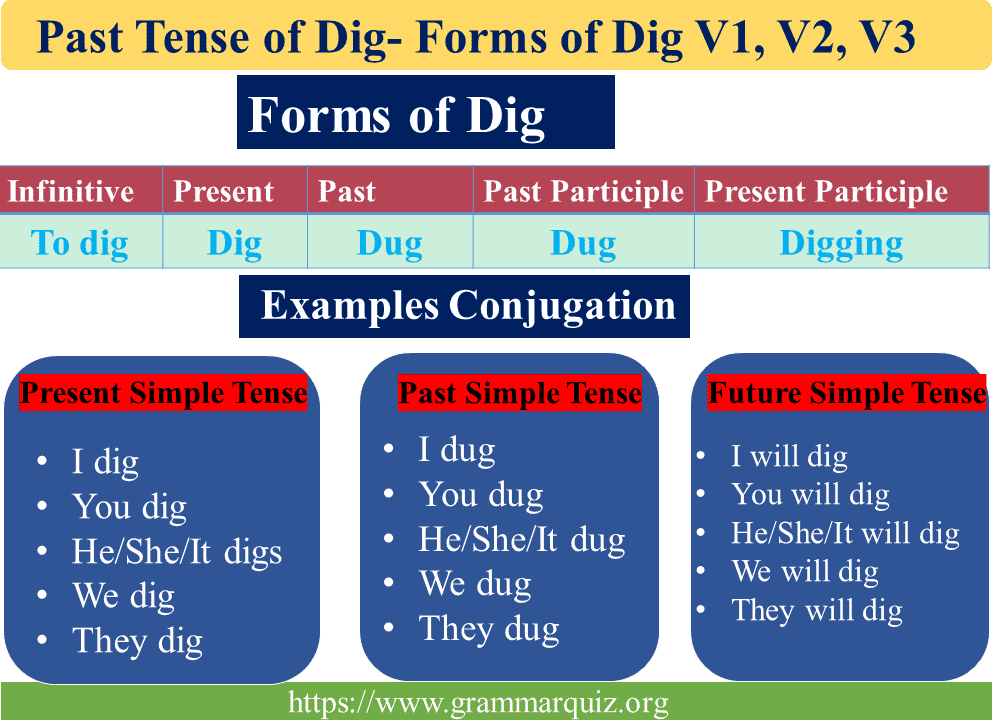
Past Tense of Dig Forms of Dig V1, V2, V3
Irregular Verbs List Definition: To Dig Irregular verb: To Dig Verb conjugation: Dig - Dug - Dug Meaning of 'To Dig' To make a hole in the ground Conjugation of verb 'Dig' Irregular Verbs Following a Similar Pattern Verbs like: Subscribe to Ad-Free Browsing Enjoy a seamless learning experience without interruptions from advertisements.
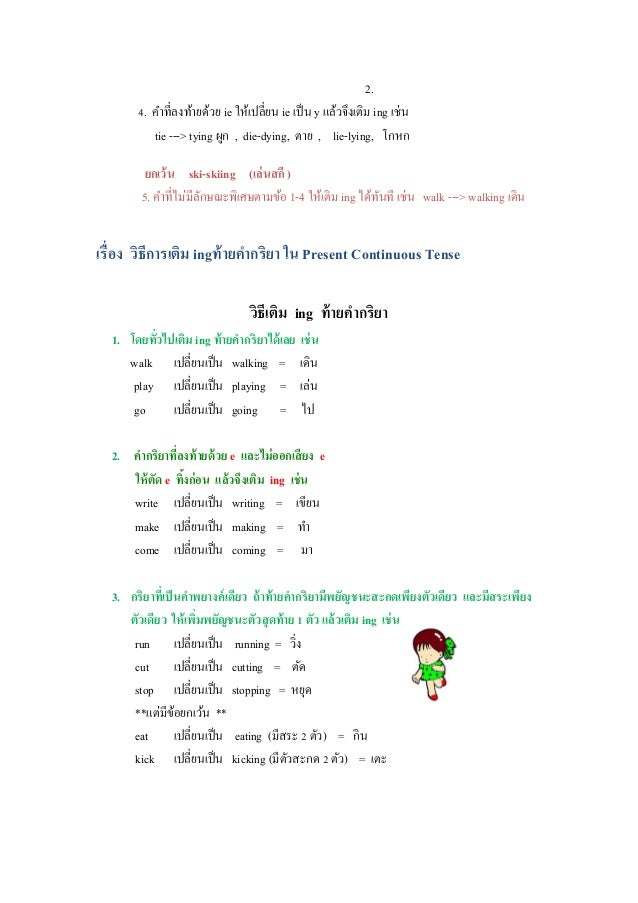
Past Progressive Tense Of Dig Les BauxdeProvence
From Longman Dictionary of Contemporary English dig1 /dɪɡ/ S2 verb (past tense and past participle dug /dʌɡ/, present participle digging) 1 [ intransitive, transitive] to move earth, snow etc, or to make a hole in the ground, using a spade or your hands dig a hole/trench/grave etc They dig a small hole in the sand to bury their eggs. dig dow.
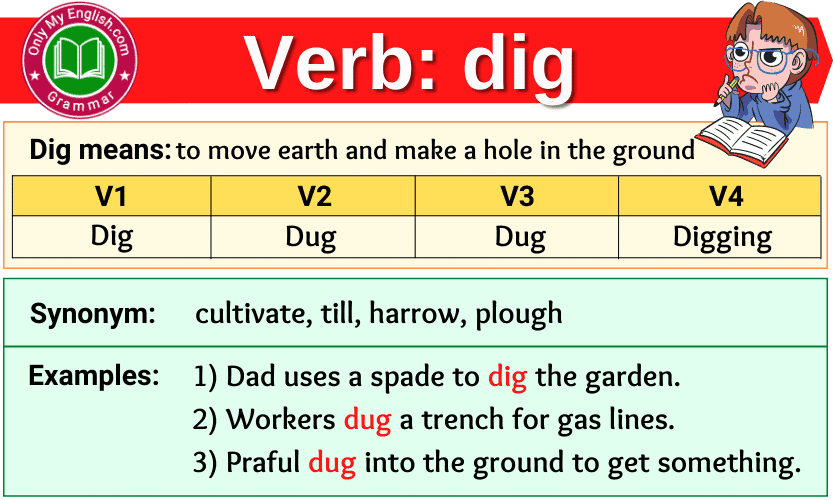
Dig Verb Forms Past Tense, Past Participle & V1V2V3 »
Find the simple past tense and past particle of the verb dig. Also see how to use the verb dig in the past tense with some examples.

Dig Past Simple, Simple Past Tense of Dig, Past Participle, V1 V2 V3
past tense of dig is dug. Dig verb forms Conjugation of Dig Simple / Indefinite Present Tense He/She/It digs . I dig. You/We/They dig. Present Continuous Tense He/She/It is digging. I am digging. You/We/They are digging. Present Perfect Tense He/She/It has dug. I have dug. You/We/They have dug. Present Perfect Continuous Tense

Verb 3 Dig Meteor
Dig past tense 26.03.2020 The English verb 'dig' is pronounced as [dɪg]. Related to: irregular verbs. 3 forms of verb dig: Infinitive (dig), Past Simple - (dug), Past Participle - (dug). Here are the past tense forms of the verb dig 👉 Forms of verb dig in future and past simple and past participle. What is the past tense of dig.